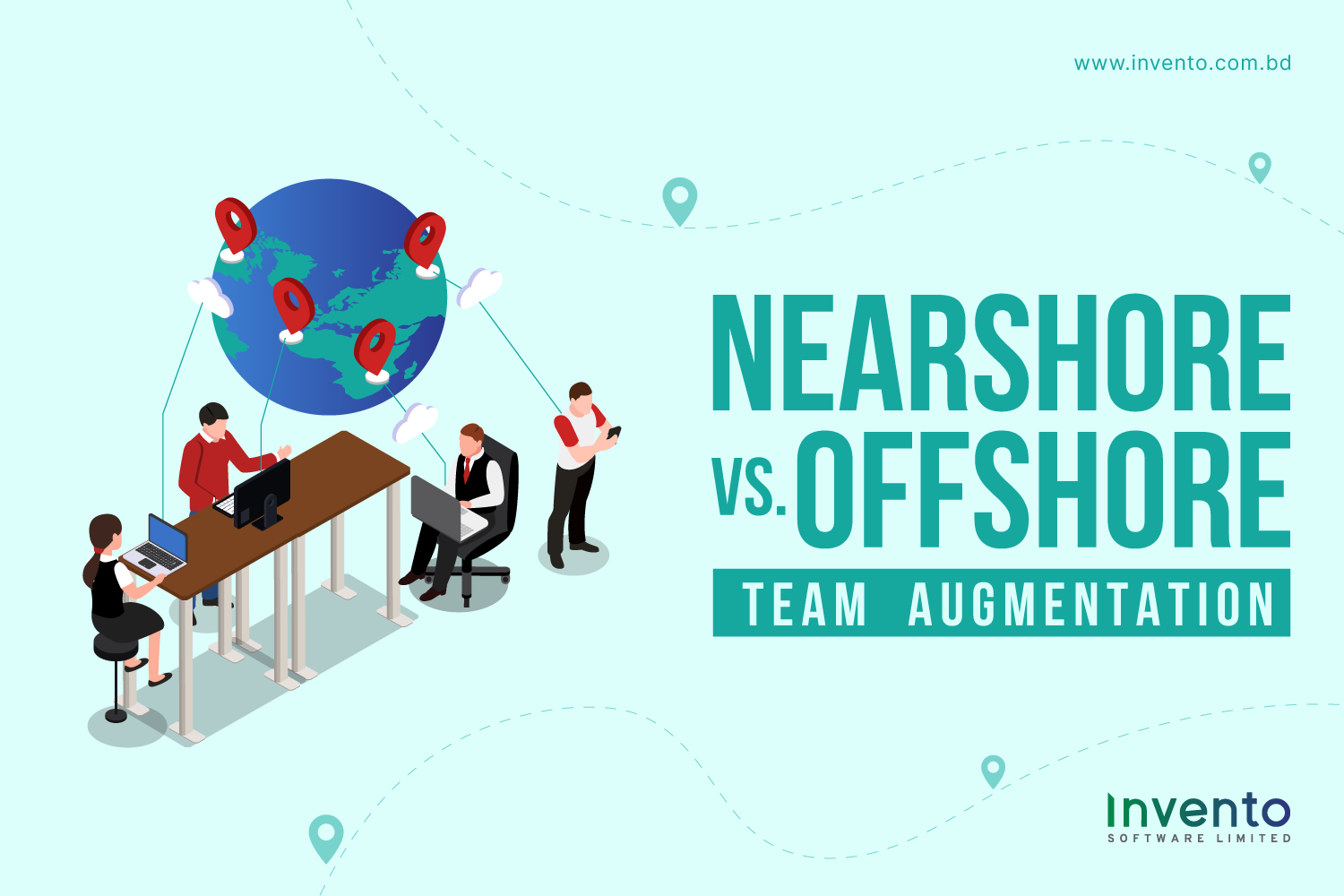Are you facing difficulties in meeting project deadlines due to a shortage of skilled professionals? Many tech industries face this challenge because of the rising shortage of skilled experts, the fast speeds of technological advancements, and the ongoing pressure to meet the tight deadlines.
Perhaps you’ve noticed that in recent years the situation’s been raging for a while, which affects your ability to begin your project timely.
Indeed, you can explore outsourcing as a common way to develop software using external resources. However, what if you’ve already in-house teams but need to augment them with some critical tech skills? That’s exactly where software team augmentation steps in.
Moreover, one effective strategy is often used to maintain agility and competitiveness, and that’s software team augmentation. This approach allows companies like yours to enhance their in-house teams with external experts, providing flexibility, specialized skills, and cost efficiency.
In this blog, we’ll cover what software team augmentation is and how it can be a common and easy solution for your business step by step, bridging skill gaps of your in-house teams. We’ll also outline its benefits, compare it with other models, highlight when it works best for you and identify steps for its successful implementation. So, stay connected to learn more!
What is Software Team Augmentation?
Software Team Augmentation is a staffing strategy where businesses commonly integrate external professionals into their existing teams on a temporary basis. Generally speaking, it’s not like traditional outsourcing, where entire projects are handed off to third parties. Rather software team augmentation involves collaborating with external experts who work along with your internal teams. That’s the model which is beneficial especially when you need specific skills for short-term projects or to meet tight deadlines.
How Software Team Augmentation Can Fix Your Issue
| Problem Area | Impact on Your Business | How Team Augmentation Fixes It |
| Lack of skilled developers | Delays in project start and missed opportunities | Bring in experts with specific tech skills (e.g., AI, cloud, blockchain) on demand |
| Tight project deadlines | Increased pressure on the internal team; risk of burnout | Add temporary resources to boost speed and meet deadlines |
| High recruitment and onboarding costs | Budget overruns and time-consuming hiring | Hire pre-vetted developers and avoid full recruitment cycles |
| Team overloaded during peak seasons | Decline in quality and productivity | Instantly scale your team for temporary support |
| Need flexibility without long-term commitments | Inability to adapt to project changes | Hire talent on a flexible, short-term basis |
| Limited local access to specialized talent | Hiring delays or project stagnation | Access global professionals through a reliable augmentation partner |
| Testing or launching a new product (MVP) | Slow go-to-market and lost competitive edge | Rapidly prototype and test ideas with external specialists |
| Gaps in internal team experience | Risk of poor decision-making or failed implementation | Fill skill gaps with senior consultants or developers |
| Managing multiple simultaneous projects | Teams stretched too thin, affecting quality and delivery | Delegate specific projects or modules to augmented team members |
Core Benefits of Software Team Augmentation
1. Access to a Global Talent Pool
If you adopt software team augmentation in your business, you can tap into a worldwide network of skilled professional experts. This global reach ensures that your company finds the right expertise, regardless of any geographical limitations.
If you’re wondering how that can work for you. The detailed guidelines are below to get your answers. Read carefully!
For instance, Successful companies like Invento Software Limited highlight that team augmentation provides access to experts from around the world, bringing diverse skills and experiences to your projects
2. Cost Efficiency
When you hire full-time employees, it involves significant costs right? For instance, including recruitment, training, salaries, and benefits. That’s exactly where the software team augmentation offers you a very cost-effective alternative by allowing businesses to pay for services only when required. That’s how this model reduces your overhead expenses and enables better budget management for your business.
3. Flexibility and Scalability
Sometimes, the project demands can fluctuate, requiring businesses to scale their teams up or down accordingly. But software team augmentation can provide you the actual flexibility to adjust the team size based on project requirements, ensuring optimal resource utilization. This approach also allows companies like yours to introduce variation as needed, adapting to changing circumstances efficiently.
4. Faster Time-to-Market
By integrating experienced professionals into your team, you can accelerate project timelines. These experts can quickly adapt to your workflows, reducing the learning curve and enhancing productivity. Not only this, but this speed also is a crucial event in competitive markets where timely delivery can be a significant differentiator.
5. Mitigation of Recruitment Challenges
You’ve probably noticed in some cases that the recruitment process can be time-consuming and resource-intensive. On the other hand, software team augmentation bypasses these challenges by providing immediate access to qualified professionals. Hence, this approach is particularly beneficial when specialized skills are required for a limited period.
Comparative Table: Team Augmentation vs. Traditional Hiring vs. Outsourcing
| Criteria | Team Augmentation | Traditional Hiring | Full Project Outsourcing |
| Time to Hire | Fast (1–2 weeks) | Slow (1–3 months) | Medium (depends on scope) |
| Control Over Project | High | High | Low |
| Flexibility | Very High (Scale up/down easily) | Low (Permanent roles) | Medium |
| Cost Efficiency | High (Pay only for what you use) | Medium (Ongoing salaries + benefits) | High (Fixed cost, but less transparency) |
| Skill Availability | Immediate access to niche skills | Dependent on local market | Varies by vendor |
| Integration with Team | Works within your existing team | Fully integrated | Separate team, less collaboration |
| Long-Term Commitment | None required | High | Usually project-based |
| Risk & Accountability | Shared with your team | Managed in-house | Transferred to third party |
Is the Software Team Augmentation Right for You?
Here’s a simplified answer to your question!
- Short-Term Projects: You may have in-house teams for long term projects but when you need specific expertise temporarily for a certain short-term project you’ll need software team augmentation.
- Skill Gaps: Sometimes you may find skill gaps in your own teams. But if you want to fill your in-house skill shortages without long-term commitments.
- Tight Deadlines: You’re already aware of the tight schedules or deadlines in a corporate business. To accelerate project completion with additional resources, software team augmentation is the right choice for you.
- Budget Constraints: Full time employees for all the time require big budgets. Software team augmentation is the ideal for you if you want to exclude cost for full-time employees.
- Market Expansion: Sometimes, you can come up with a new idea or innovation and you aim to test new markets or products without significant investments. That’s when you’ll feel the need for software team augmentation.
Choosing the Right Software Team Augmentation Partner
It’s really tough to manage stress if you don’t have the right software team augmentation. That’s why selecting a reliable partner is always crucial for your successful team augmentation. You should consider the following factors in terms of choosing the right software team augmentation.
- Expertise: It must be ensured that the provider has a proven track record in your industry.
- Flexibility: The ability is a must to scale resources up or down as you need.
- Communication: Necessary tools and practices for effective collaboration.
- Cultural Fit: Connectivity is needed with your company’s values and work culture.
- Security: Robust data protection is required for measuring to safeguard sensitive information.
How to Integrate Software-Augmented Teams Smoothly
You’ve perhaps heard that many companies worry about communication or productivity. Here’s a guideline on how you should integrate a software-augmented team in your business.
- Use tools like Slack, Jira, and Zoom to stay connected
- Set clear expectations and documentation
- Include augmented members in standups and team culture
- Assign a project manager to coordinate both internal and external members
This step by step method makes your post actionable and shows you the real business concerns, which matter most to lead as a successful tech leader.
Probable Challenges and Solving Strategies
While team augmentation offers numerous benefits, it’s also essential to be aware of potential challenges. For example,
- Integration Issues: You need to ensure clear communication and defined roles at first, to integrate external team members smoothly.
- Quality Control: You should establish performance metrics and regular reviews to maintain high standards.
- Dependency Risks: You must also develop knowledge transfer plans to prevent over-reliance on external personnel.
Final Thought
Now that you’ve understood, Software Team Augmentation is a strategic approach that enables your business to remain active, competitive, and responsive to the market demands. By involving external expertise in your in-house teams your company can improve its capabilities, manage costs, and accelerate project deadlines. When you make the implementation thoughtfully, software team augmentation can be a super powerful tool in achieving your business goals and driving growth.
Frequently Asked Questions (FAQs)
Q1. How does software team augmentation differ from outsourcing?
A: In software team augmentation, external working experts join your in-house teams and work under your monitoring. But in outsourcing, the whole project is managed by an entire external company with their own procedures.
Q2. Can software team augmentation be suitable for a small business or startup?
A: Yes, of course! It helps startups and SMEs access experienced professionals without heading to long-term costs.
Q3. What types of projects get most benefits from team augmentation?
A: Projects with tight timelines, special tech requirements, or short-term needs are ideal for software team augmentation.
Q4. How much time it takes to onboard an augmented team?
A: If you have the right partner, onboarding can take as little as 1 to 2 weeks typically.







